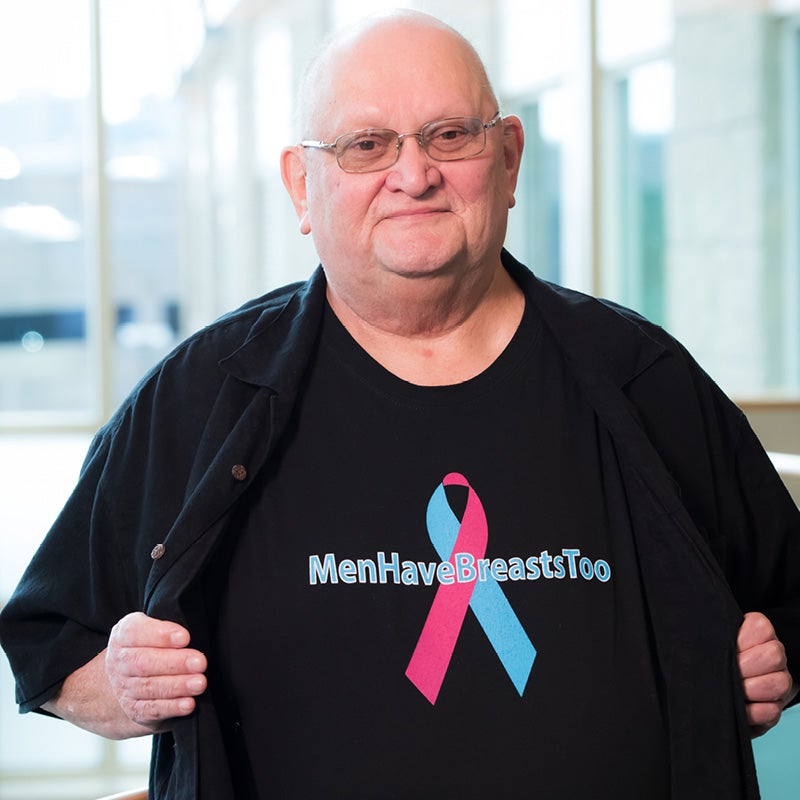
Learn more about MercyOne Cancer Care
Dennis Porter and his wife Dolores were relaxing on a beach in Texas in the spring of 2017 when she noticed that his chest looked different: his left nipple was inverted and there was a small lump. Dennis had noticed the lump, but assumed it was a benign fatty tumor. Dolores kept after him to get it checked out—loving persistence that may have saved his life.
After the couple returned home, and Dennis saw their family doctor, they were quickly referred to MercyOne Katzmann Breast Care for a mammogram and biopsy. The results showed that Dennis had male breast cancer, a rare form of the disease that accounts for less than 1% of all breast cancer diagnoses. Annually, about 2,700 U.S. men are diagnosed.
The tumor was nearly the size of an egg, and treatment began immediately.
After two surgeries, chemo, and weeks of daily radiation, Dennis’s latest scans showed he’s cancer free. And while the treatment was grueling, he’s beyond grateful for the caring and support he received from his MercyOne care team including breast surgeon Dr. Susan Beck and medical oncologist Dr. Matthew Wehbe.
“The care he received at MercyOne was fantastic,” says Dolores with a catch in her voice. “It started with Dr. Beck, who’s one of the most caring people I’ve ever met. She sees around six patients a year with male breast cancer, and we had absolute confidence in her. Dennis also has several health factors that made his treatment more complex.”
Dennis concurs. “She’s very thoughtful and clearly really cares about her patients. I felt so confident with her as my surgeon. And she insisted I have genetic testing to see whether our kids and grandkids were at risk. Thankfully, it was negative.”
Because male breast cancer is more likely to reoccur, Dennis’s treatment plan included two rounds of exceptionally strong chemotherapy—one to reduce the tumor size before surgery, and a second round after surgery.
Despite the difficult side effects of chemo, Dennis felt well prepared by Dr. Wehbe.“He laid it on the line that the chemo would be really tough, and it was,” Dennis says. “But it helped a lot that he made sure I knew what to expect going in, and that I got such good care.”
